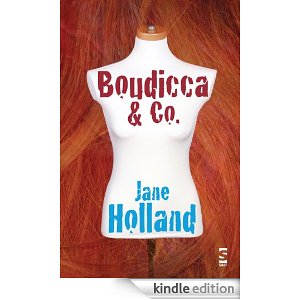
Archive Post from March 2008: Poetry Wars I and II: reblogging for fun in April 2014.
I'm reading Peter Barry's Poetry Wars: 'British Poetry of the 1970s and the Battle of Earls Court' this week, published by Salt. It's an absolutely excellent read and I highly recommend it for anyone even remotely interested in the politics of poetry, each page containing fresh hilarities and salacious gossip from the world of 1970s British poetry.
I'm still only partway through it so will probably blog about this again, once finished, but I couldn't resist a few juicy comments now.
Poetry Wars is not a linear read but a satisfying dip in and out read, as recommended by the author, who has constructed the book in several parts. First, you have the linear narrative of how, in the 1970s, the 'radicals' (i.e. those avant-gardists who consider themselves to have descended in a direct line from the gods of early modernism like Eliot and Pound) beat off the 'conservatives' (i.e. the poetic backlash against modernism, advocating a return to normalcy, traditional forms and cucumber sandwiches) to take over the Poetry Society London HQ, then situated in fading gentility in Earls Court. Then you have chapters devoted to various 'themes' connected to that - almost decade-long - battle, with further chapters at the back consisting of dated lists, relevant documents, explanations of terms etc.
Reading this book has clarified for me, in a matter of hours, the terrible enmity that still exists between these two main strands within British poetry. Taking the bulk of its material from Poetry Society and Arts Council archives, memoirs, personal statements, plus a full account of the Witt Panel investigation of the Poetry Society's operations in 1976 - think full-blown McCarthyism in Piccadilly! - this book details, often meticulously, who said what to whom and when. There's rather less discussion of 'why' than I would like, but I suppose these memories must still be raw enough in some people's minds for that question to be approached with delicate circumspection.
And it's not all one-sided. Although Peter Barry is firmly on the 'side' of the radicals, by his own admission, he has tried to present evidence and anecdote in as unbiased a manner as is possible with such difficult material, not trying to hide mistakes by his own party even as he highlights occasionally underhand actions by the more conservative element as they attempted to get back into power.
So here's a quick taster of life at the Poetry Society in the mid-70s, in a marvellous anecdote apparently related by Peter Finch:
'We're sitting in the White House, the hotel bar next to the Poetry Society in Earls Court Square. Criton Tomazos is standing on the mantel piece ripping bits out of a book and chanting. Bob [Cobbing] has drunk almost half a bottle of whiskey and is still standing, or leaning. Jennifer [Jennifer Pike, Cobbing's wife] arrives in her small car to take us home. The vehicle is full of boxes, papers and bits of equipment. We push Bob into the front seat but there's no room for me in the back. I climb onto the roof rack. We drive. Somehow we get back.'
More of this later.
You can buy 'Poetry Wars' online at Salt Publishing.
***
Poetry Wars PART II
Tucked out of sight of the snipers, safe for now under my duvet, I continue my reading of Peter Barry's highly dangerous Poetry Wars: British Poetry of the 1970s and the Battle of Earls Court. See previous post for full briefing.
March 13th 2008. Late evening. Skim-reading through Chapter Nine: Taking a Long View. Bombing less heavy tonight. Discussing possible reasons for the marginalisation of experimental poetry both then and now, Peter Barry writes from the quieter trenches of retrospection (pp.183-4):
'Part of the explanation, then, must lie in the specific social formation of avant-garde poets, and to some extent (to return to a point raised earlier) it concerns their attitude to publication, which is often very complex and contradictory, as frequently with avant-garde groups. Some variety of self-publication, in fact, has long been the norm for innovatory writing - it isn't an accident that T.S. Eliot first published The Waste Land in a magazine he was editing himself, or that Virginia and Leonard Woolf ran the Hogarth Press. By definition, almost, the quality of something new will not easily be recognised by major publishers, who must cater for an existing set of public tastes. But these existing public tastes are precisely what an avant-garde despises or distrusts ...
... In Liquid City (Reaktion, 1999), Iain Sinclair, en route to visit Eric Mottram [experimental poet and 1970s editor of Poetry Review during the running battles between what Peter Barry terms 'radicals' and 'conservatives' - JH] with photographer Marc Atkins, explains to Atkins who Mottram is and what he represents:
The names don't mean anything to Atkins. This is deleted history - Allen Fisher, Bill Griffiths, Barry MacSweeney, the heroes of the 'British Poetry Revival' - have been expunged from the record. Poetry is back where it belongs: in exile. In the provinces, the bunkers of academe. In madhouses, clinics and fragile sinecures.'
*
For more on avant poetry versus the mainstream, here's a discussion of some antithetically opposed contemporary anthologies.
ARCHIVE POST: These two posts were first published on Raw Light in March 2008.










